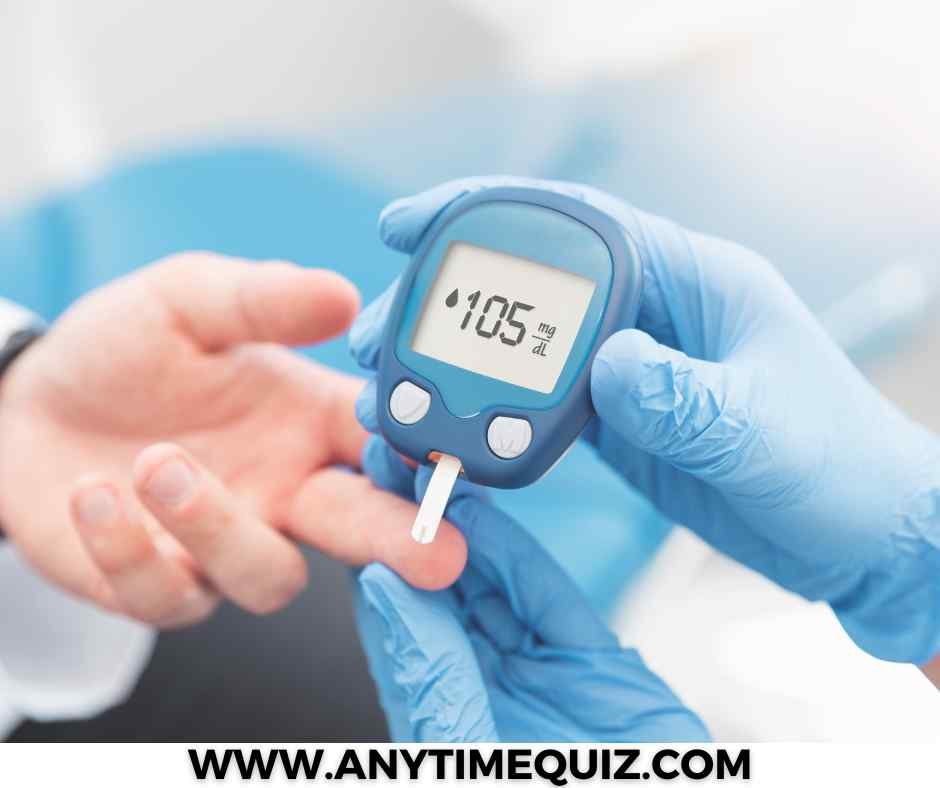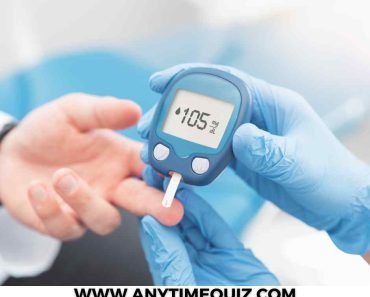Are you wondering if you might have diabetes? It’s a common concern for many people, but the good news is that there are ways to find out. One effective method is by taking a “Do I have diabetes quiz.” This simple questionnaire can help you assess your risk factors and provide insights into whether you should seek further medical advice.
So, what exactly does this quiz entail? Well, it typically consists of a series of questions designed to evaluate various aspects of your health and lifestyle. For instance, you may be asked about your family history of diabetes, your age, weight, dietary habits, exercise routine, and any symptoms you may be experiencing. The purpose is to gather relevant information that can indicate the likelihood of having diabetes.
Keep in mind that a do-it-yourself quiz cannot provide a definitive diagnosis. It serves as an initial screening tool to gauge your risk level. If your responses suggest a high probability of having diabetes, it’s crucial to consult a healthcare professional for proper evaluation and testing. They will consider additional factors, conduct specific tests like blood glucose measurements, and interpret the results accurately.
Taking a “Do I have diabetes quiz” can be an essential first step in monitoring your health. By answering the questions honestly and thoroughly, you’re actively participating in your well-being. Early detection of diabetes allows for timely intervention, which can significantly improve your overall health outcomes.
Remember, though, that this quiz only offers a preliminary assessment. It’s not a substitute for professional medical advice. Whether the result indicates a potential risk or not, it’s always best to consult with a healthcare provider who can guide you through further steps.
a “Do I have diabetes quiz” is a useful tool for self-assessment. By answering a set of targeted questions, you can gain insight into your risk factors and determine whether seeking medical advice is warranted. Take control of your health today, and don’t hesitate to reach out to a healthcare professional for guidance and support.
Take the Diabetes Quiz: Find Out Your Risk Level
Are you curious to know your risk level for diabetes? Take the Diabetes Quiz and find out! This interactive quiz is designed to assess your likelihood of developing diabetes based on various factors such as lifestyle, family history, and overall health. It’s a quick and easy way to gain valuable insights into your diabetes risk.
The Diabetes Quiz consists of a series of carefully crafted questions that delve into different aspects of your life. By answering these questions honestly, you’ll receive an accurate assessment of your risk level. The questions cover areas like age, weight, physical activity, diet, and medical history. The quiz takes into account both controllable factors, such as diet and exercise, and non-controllable factors, such as age and genetics.
Why should you take the Diabetes Quiz? Well, knowing your risk level allows you to take proactive steps toward preventing or managing diabetes. Early detection and intervention are key to maintaining good health. By identifying your risk factors, you can make informed decisions about your lifestyle and seek appropriate medical advice.
Imagine this quiz as a compass that guides you toward a healthier future. It empowers you with knowledge about your own body and helps you understand how certain behaviors might be affecting your risk. Think of it as a friendly wake-up call urging you to take charge of your well-being.
So, are you ready to take the Diabetes Quiz? It’s just a few clicks away. Remember, this quiz is not meant to diagnose diabetes but rather to provide you with an estimation of your risk level. If your results indicate a higher risk, it’s crucial to consult with a healthcare professional for further evaluation and guidance.
Take the first step towards a healthier life. Start the Diabetes Quiz now and discover what lies ahead on your path to wellness. Your future self will thank you for it!
Please note: The Diabetes Quiz is for informational purposes only and should not replace professional medical advice.
Assessing Diabetes Symptoms: Do You Have the Warning Signs?
Are you experiencing frequent thirst, unexplained weight loss, or blurry vision? These could be warning signs of diabetes. It’s essential to assess these symptoms and take action if needed. In this article, we will delve into the details of assessing diabetes symptoms and help you recognize the warning signs.
One of the most common symptoms of diabetes is increased thirst. Do you find yourself constantly reaching for a glass of water? This excessive thirst, known as polydipsia, occurs when your body tries to flush out the extra sugar through urine, leaving you dehydrated. If you notice that you’re drinking more fluids than usual, it’s worth considering whether it could be a sign of diabetes.
Another key indicator of diabetes is unexplained weight loss. Have you been shedding pounds without making any conscious effort? While weight loss is typically associated with positive lifestyle changes, such as exercise and a healthy diet, unexpected weight loss can be a red flag. When your body doesn’t get enough energy from glucose, it starts burning fat and muscle, leading to weight loss. If you’ve noticed a significant drop in weight without trying, it’s crucial to consult a healthcare professional.

Blurry vision is another symptom that should not be ignored. High blood sugar levels can cause the lens in your eyes to swell, resulting in blurred vision. If you’ve been experiencing difficulty focusing or noticing sudden changes in your vision, it’s important to get your eyes checked by an optometrist. Addressing the underlying cause, such as diabetes, can help prevent further complications.
In addition to these symptoms, other warning signs of diabetes include frequent urination, constant fatigue, slow healing of wounds, and recurring infections. It’s important to listen to your body and recognize these potential indicators. If you suspect you might have diabetes, make an appointment with your doctor for proper diagnosis and management.
Remember, early detection is key when it comes to diabetes. Assessing your symptoms and seeking the necessary medical advice can help you take control of your health and prevent complications down the road. So, if you’re experiencing any of these warning signs, don’t hesitate to reach out to a healthcare professional and get the guidance you need. Your well-being is worth it!
Diabetes Self-Assessment Test: Determine Your Potential Risk
Are you concerned about your risk of developing diabetes? If so, it’s important to take proactive steps to assess your potential risk. Diabetes is a chronic condition that affects millions of people worldwide, and early detection is key to managing this disease effectively. In this article, we will explore the Diabetes Self-Assessment Test, a valuable tool designed to help individuals determine their risk of developing diabetes.
The Diabetes Self-Assessment Test is a simple yet powerful method to evaluate your potential risk of diabetes. By answering a series of questions related to your lifestyle, medical history, and family background, you can gain insights into your susceptibility to this condition. This test doesn’t require any medical expertise and can be easily completed by anyone.
The questions in the self-assessment test cover various aspects such as age, weight, physical activity level, diet, and any existing health conditions. By considering these factors, the test provides an overall assessment of your risk level. It’s important to answer each question honestly and to the best of your knowledge to obtain accurate results.
Once you have completed the Diabetes Self-Assessment Test, you will receive a risk score indicating whether you have a low, moderate, or high risk of developing diabetes. If your results indicate a high risk, it’s crucial to consult with a healthcare professional for further evaluation and guidance. Remember, this test is not a diagnostic tool but serves as a valuable indicator of your potential risk.
Taking the Diabetes Self-Assessment Test can empower you to make informed decisions about your health. If you discover that you are at risk of developing diabetes, you can take proactive steps to lower that risk through lifestyle modifications such as adopting a healthy diet, engaging in regular physical activity, maintaining a healthy weight, and managing any underlying health conditions.
the Diabetes Self-Assessment Test offers a convenient and accessible way to evaluate your potential risk of developing diabetes. By taking this test and understanding your risk level, you can take proactive steps towards a healthier future. Remember, knowledge is power when it comes to managing your health, so don’t hesitate to take the first step in assessing your risk of diabetes today.
Discovering Diabetes: Assessing Your Likelihood of Having the Disease
Title: Discovering Diabetes: Assessing Your Likelihood of Having the Disease
Introduction: Have you ever wondered about your likelihood of developing diabetes? It’s a prevalent disease that affects millions of people worldwide. Understanding your risk factors is crucial for early detection and prevention. In this article, we will explore key indicators and lifestyle factors that can help you assess your likelihood of having diabetes.
Are You at Risk? Diabetes is a complex condition influenced by various factors. Genetics, lifestyle choices, and medical history can all play a role in determining your predisposition to the disease. If you have close relatives with diabetes, such as parents or siblings, your risk increases. However, genetics alone don’t seal your fate. Lifestyle factors also contribute significantly.
Weight and Waistline: Carrying excess weight, particularly around the waistline, can increase your chances of developing diabetes. Visceral fat, which accumulates around the abdominal organs, is linked to insulin resistance. Measure your waistline – if it exceeds 35 inches (88 cm) for women or 40 inches (102 cm) for men, consider it a potential risk factor.
Physical Activity: Regular physical activity not only helps maintain a healthy weight but also improves insulin sensitivity. Are you leading a sedentary lifestyle, spending most of your time sitting? Engaging in moderate-intensity exercises like brisk walking or cycling for at least 150 minutes per week can significantly reduce your risk.
Dietary Habits: Your eating habits also influence your likelihood of developing diabetes. A diet high in processed foods, sugary drinks, and unhealthy fats raises your risk. Conversely, a balanced diet rich in whole grains, fruits, vegetables, lean proteins, and healthy fats can lower your risk. Pay attention to portion sizes and limit your intake of sugary and highly processed foods.
Blood Pressure and Cholesterol: High blood pressure and abnormal cholesterol levels are often associated with diabetes. Monitoring and managing these factors through regular check-ups, a healthy diet, exercise, and medication if necessary, can help prevent or delay the onset of diabetes.
Conclusion: Understanding your likelihood of having diabetes is the first step towards prevention and early intervention. Assessing risk factors such as genetics, weight, physical activity, diet, blood pressure, and cholesterol levels can provide valuable insights. By making positive lifestyle changes and seeking medical advice when needed, you can take control of your health and reduce the risk of developing diabetes. Remember, knowledge is power, and taking proactive steps today can lead to a healthier future.










